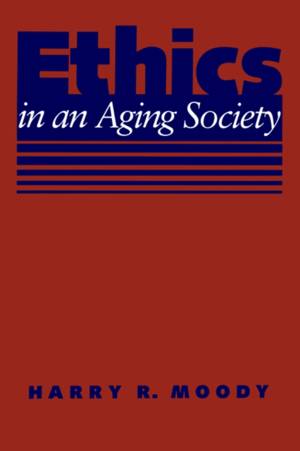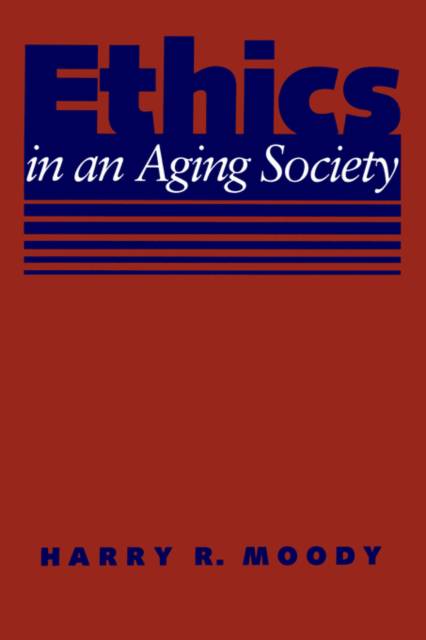
- Afhalen na 1 uur in een winkel met voorraad
- Gratis thuislevering in België vanaf € 30
- Ruim aanbod met 7 miljoen producten
- Afhalen na 1 uur in een winkel met voorraad
- Gratis thuislevering in België vanaf € 30
- Ruim aanbod met 7 miljoen producten
Omschrijving
Recent years have seen a growing interest in the questions of ethics and aging. Advances in medical technology have created dilemmas for physicians, nurses, and other health care professionals over such questions as the allocation of resources and a patient's "right to die." At the same time, the aging of the American population raises concerns about social policies that involve the role of government. In Ethics in an Aging Society Harry R. Moody examines both the clinical and the policy issues that center around aging.
Moody pays special attention to the ethical problems associated with two particularly timely concerns--Alzheimer's disease and the increasingly controversial issue of "rational suicide" for reasons of age. He also focuses on the rights of patients in long-term care and on the question of justice between generations (Are older patients using more than their "fair share" of scarce health care dollars?).
"These ethical questions," Moody emphasizes, "are not abstract ones. They arise in the specific historical and political context of America in the closing decade of the twentieth century . . . This book can best be understood as a meditation on two compelling liberal ideas--autonomy and justice--that have inspired our thinking about ethics and the aging society. The story which unfolds in the book is a story both about the power of those ideals and also about inescapable facts of old age that make those ideals problematic."
Specificaties
Betrokkenen
- Auteur(s):
- Uitgeverij:
Inhoud
- Aantal bladzijden:
- 288
- Taal:
- Engels
Eigenschappen
- Productcode (EAN):
- 9780801853975
- Verschijningsdatum:
- 1/03/1996
- Uitvoering:
- Paperback
- Formaat:
- Trade paperback (VS)
- Afmetingen:
- 155 mm x 228 mm
- Gewicht:
- 439 g

Alleen bij Standaard Boekhandel
Beoordelingen
We publiceren alleen reviews die voldoen aan de voorwaarden voor reviews. Bekijk onze voorwaarden voor reviews.











